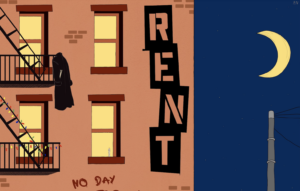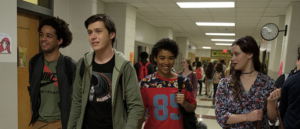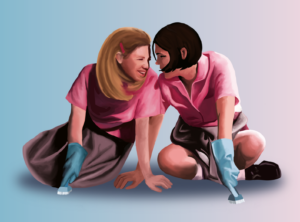GUPride and Georgetown Against Gun Violence partnered Nov. 9 to host “Orlando and On: Violence, Healing and Community,” as part of the LGBTQ Resource Center’s “Outober” series. Panelists discussed the shooting at Pulse nightclub in Orlando in June 2016, violence against the LGBTQ community, the importance of intersectionality, and ways of moving forward in the LGBTQ rights movement, especially considering the results of the presidential election.
Grace Smith (COL ‘18), the co-president of GU Pride, said that GU Pride wanted the event to center around intersectionality, the interconnection of different identities. Many of those killed in Orlando were Latino. “We wanted this to be both an intersectional and radical experience that acknowledged the many ways in which various groups have stake in [LGBTQ] issues and are deeply impacted by them,” Smith wrote in an email to the Voice.
To that end, the panelists agreed that the Pulse shooting reflected a need for intersectionality in the LGBTQ activist movement. Lisbeth Melendez Rivera, director of Latinx and Catholic Initiatives at the Human Rights Campaign and co-chair of the People of Color Employee Resource Group, and Audrey Juarez, legal project coordinator at the Center for American Progress, cited their own reactions to the shooting as Latinx lesbians. “All of these last names [on the news] looked like mine. And that was my initial thought: these are a lot of people, and we have been targeted,” Juarez said. Rivera agreed, saying that the event was not based on either discrimination against Latinx or LGBTQ people individually, but was a form of discrimination against both groups. “This is not an either/or—this is a both/and,” Rivera said.
Moira Redmond (NHS ’17) said that it was valuable to her to hear others’ experiences and to discuss her own. “I thought this was a really great event to get different perspectives on the election and related to the events in Orlando and just all over the country,” said Redmond. “It was really helpful hearing from other people to help with the healing process.”
The event was overshadowed by the results of the presidential election in favor of Donald J. Trump earlier that morning. Panelists and students alike condemned Trump’s election. Rivera said that discussing violence against the LGBTQ community was especially difficult in light of the election’s results, as she feared it would lead to an increase in hate crimes. “The election was, in some form, violence against communities in the form of elected and legalized hatred that will inevitably manifest itself in some pernicious way of being,” Smith wrote to the Voice.
Although many panelists and students in attendance mourned both Trump’s victory and the shooting in Orlando, there was also a focus on recent LGBTQ victories. Jason Linsey, executive director of the Pride Fund to End Gun Violence celebrated the victories of his organization, such as the defeat of anti-gay pro-NRA Congresspersons in Florida and New Jersey, saying that the Orlando shooting inspired him to work to end gun violence.
Back on campus, Smith said that the work done by student groups such as GU Pride needs to continue. “GUPride would like to reaffirm its commitment to all students and to the larger community,” wrote Smith. “Especially in these times, we hope to do everything we can to provide a space of warmth and love for everyone who needs and wants it, and we hope to bring this kind of solidarity to all communities.” The panelists agreed, pledging to continue their efforts to expand LGBTQ rights.
“There’s so much work to do—that work, that anger, that’s what brought me here,” said Juarez. “Our communities are stronger when we stand together.”





